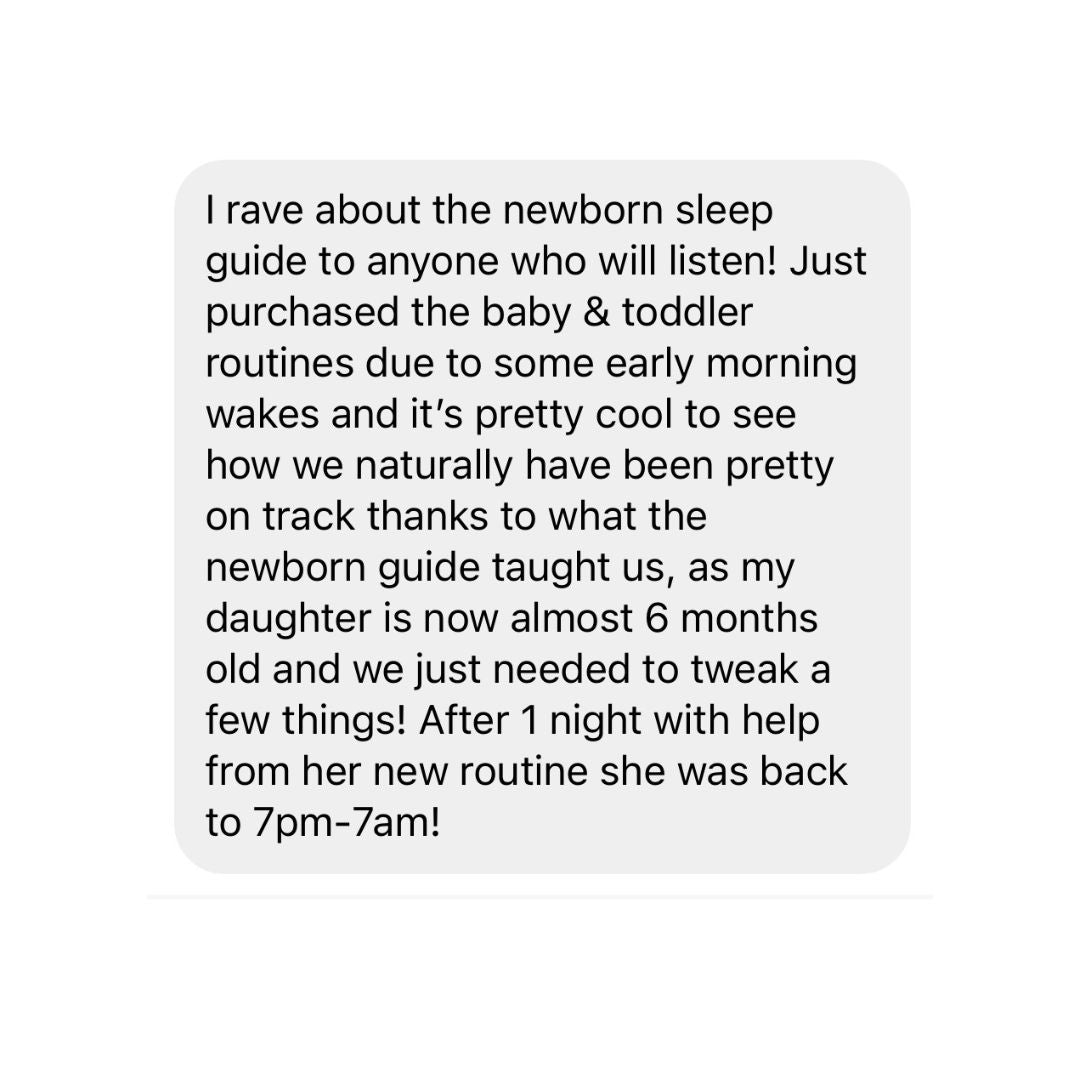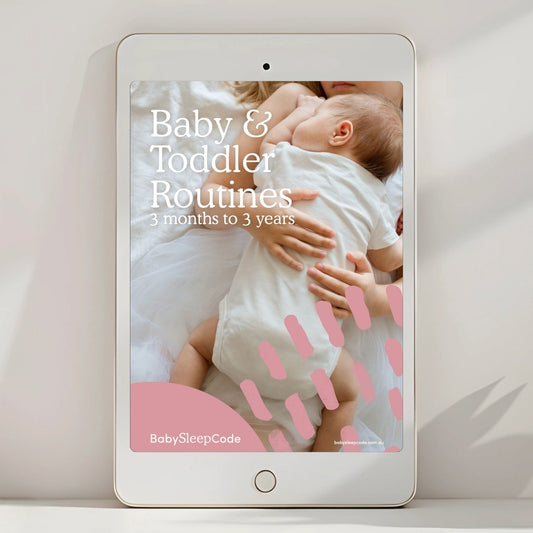For younger babies under 6 weeks, it can be pretty unavoidable and usually just means bub wants a few extra calories before settling in for a longer stretch of sleep.
But if your baby is still experiencing these long fussy evenings after 6 weeks - here are some tips to help get your evenings on track.
- Make sure they’re having adequate and quality naps during the day. Too many short naps across the day will lead to chronic overtiredness and an increase in their cortisol levels, so they’ll really struggle to wind down at bedtime.
- Get them to bed as early as possible. Sleep pressure continues to build up over the day. If they’ve been awake for 11-12 hours (with naps in between) they’ll be ready for bed. You may even need to cap their last nap of the day so that bedtime doesn’t push too late.
- Let them cluster feed! If you’re already on an established feeding routine it’s a good idea to offer two feeds in their bedtime wake window to ensure they’ve topped up their milk tank ready for a decent stretch of sleep. If they do wake shortly after bedtime, just head straight to their room, offer a top up feed and settle them back to sleep.
Solve late night witching hours with our Newborn Sleep Guide which includes age-appropriate routines and sleep tips for the first 3.5 months to help navigate your days and set your nights up for success.
“After implementing this guide at 6 weeks old our son went from waking every 1.5-2 hours at night, to sleeping 7pm-7am with only 1-2 feeds.” Kiara, W
“Every new parent needs this guide, not only will your baby be so much happier following the routines, they will sleep well and you will finally get some of your sanity back.” Tara, G


















